We caught up with Preston Benson, the American-born founder of Really Local Group, the team behind the transformation of Catford Mews, for his thoughts on what the high street will look like after coronavirus, whether localism and community will become more important than ever and why property investors should consider hidden gems.
What will the high street look like post-pandemic? Will there be an increase in office/retail to resi conversions as high street chains and shops struggle with low footfall and Covid-19-related financial issues?
Sadly, things will get worse before they get better as the pandemic has accelerated trends underway pre-Covid-19, with a further shift to shopping online and resulting 'hollowing out' of the high street.
 Middle-market brands offering no differentiation, and private equity-backed businesses who over-expanded will continue to close. In the medium to long-term, we can expect to see a smaller/more compact high street with a wider range of uses, including residential and office. Eventual lower rents and rates will allow local entrepreneurs to colonise the remaining vacant retail and flourish!
Middle-market brands offering no differentiation, and private equity-backed businesses who over-expanded will continue to close. In the medium to long-term, we can expect to see a smaller/more compact high street with a wider range of uses, including residential and office. Eventual lower rents and rates will allow local entrepreneurs to colonise the remaining vacant retail and flourish!
Will there be an increase in localism, as more people seek to shop local (beer, wines, food, coffee, other goods) and socialise locally?
Before Covid-19, there was already a strong trend to shop at and support local businesses. The recent lockdown has accelerated this, with consumers being ‘forced’ to shop local due to travel restrictions, and many discovering and exploring local businesses on their doorstep for the first time.
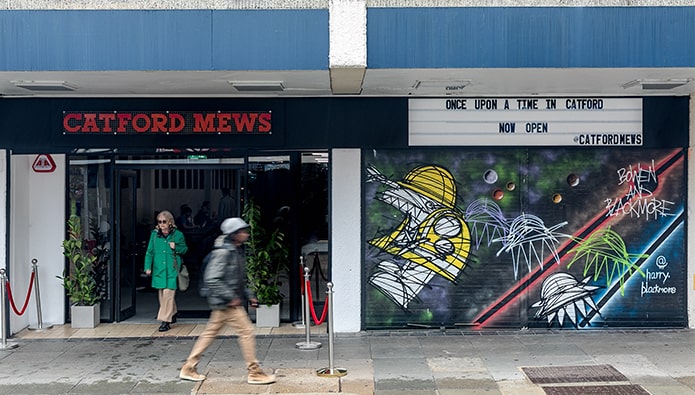
As restrictions ease, we believe people will recognise and support those establishments that truly have the interest of the community a heart, and which venues will have adapted to meet the needs of their consumers over the ‘usual suspect’ identikit chains who prioritise profit over all else.
Would social distancing, which could be in place for a considerable amount of time yet, be viable for Catford Mews and RLG's other developments?
The health and safety of our staff and customers is paramount and we will continue to monitor social distancing measures and await further government guidelines.
Assuming the situation continues to improve, we can start to look forward and plan for a post-pandemic future, where we expect to be able to ease back into hosting events of various sizes. It is not a secret that the current two metre rule is unsustainable for leisure businesses such as ours, and we anticipate this changing very soon. (The government has since confirmed that the two-metre rule will now be a flexible one metre-plus rule where two metres can’t easily be adhered to.)
Could you tell us a bit more about RLG's developments in Hayes and Bermondsey? Have they been impacted by the crisis?
We are excited to be working with Southwark Council to create a high street cultural venue for Bermondsey, that will restore an iconic landmark at The Blue, a central marketplace. The Bermondsey development will be an all-day community space that will see the creation of a three-screen cinema, coffee shop, a café, bar, informal co-working spaces and a food and craft hall featuring local artisans and vendors.
Our Hayes site, which will be called The Gramophone, will provide a three-screen boutique cinema in the former Pressing Plant building on the Old Vinyl factory site, as well as a live music venue, community spaces, a café and bar, and an exhibition space celebrating the site's musical/EMI heritage.
During the pandemic, we are fortunate that we have been able to continue moving forward on both projects as they are in their planning phases.
Do any of these schemes, or any others you have in the pipeline, have a residential property element to them?
At present, none of our schemes have a residential element to them but with every project our aim is to create a positive impact on the community that we reside in. We believe our product is natural fit for a resi-anchored, mixed-use scheme, and are always on the lookout for new partners who are open to working together to deliver this vision.
Do you think property investors, moving forward, will want to invest in areas with a strong sense of community and local buy-in?
Yes, as a business we have invested and believe that the future is local and this is core to Really Local Group's mission. We recruit direct from the communities we are serving and are proud to be a London Living Wage employer.
Each of our venues is uniquely designed to reflect its locality - we engage with local food vendors, craftsmen, arts club and community groups to facilitate their activities by providing them with a much-needed ‘home’. In addition, our Catford Mews venue has become an unofficial, but vital workplace for many self-employed people.
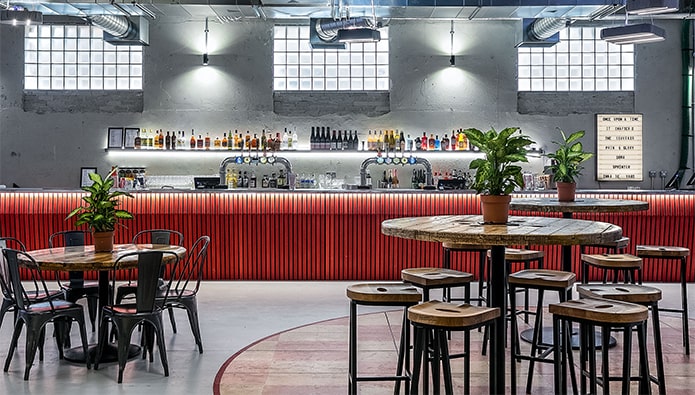
This movement in social cohesion and community will continue to grow and be encouraged, leading to investors looking more at regeneration plans that put the essential economic and social wellbeing of the public first.
Will future retail/property developments have to factor in things like social distancing, greater hygiene protocols and remote working when they are being planned for?
Yes, absolutely. Developers will need to start working closely with management teams to be ready for occupation as lockdown measures continue to be eased.
Communal spaces will need to be reviewed to ensure all seating meets the current social distancing guidelines and good hygiene and cleanliness will become the expected norm.
What opportunities could come out of this crisis in terms of regeneration, the transformation of the high street and a greater use of what is on your doorstep?
We should hopefully see the future of the high street transform to deliver true regeneration; with developers supporting independent businesses to stay afloat post the crisis as well as provide tailored retail experiences that are uniquely designed to embrace the culture of the location and relevance to the local demographic.
To property investors considering investing in somewhere like Catford - or equally Hayes, Bermondsey and Reading - would you say these are safe havens in terms of rental yields, tenant demand and capital appreciation?
We prefer to invest and operate in areas that are historically underserved for a culture/leisure provision, overlooked 'hidden gems' with a strong sense of community/identity.
Further, all of our venues are located in heavily residential areas, as our target customer lives within half a mile walking distance, which implies strong tenant demand and solid rental yields. I would argue that investors should be following our lead as we continue expanding throughout London and the South East!



.jpg)
 Middle-market brands offering no differentiation, and private equity-backed businesses who over-expanded will continue to close. In the medium to long-term, we can expect to see a smaller/more compact high street with a wider range of uses, including residential and office. Eventual lower rents and rates will allow local entrepreneurs to colonise the remaining vacant retail and flourish!
Middle-market brands offering no differentiation, and private equity-backed businesses who over-expanded will continue to close. In the medium to long-term, we can expect to see a smaller/more compact high street with a wider range of uses, including residential and office. Eventual lower rents and rates will allow local entrepreneurs to colonise the remaining vacant retail and flourish!

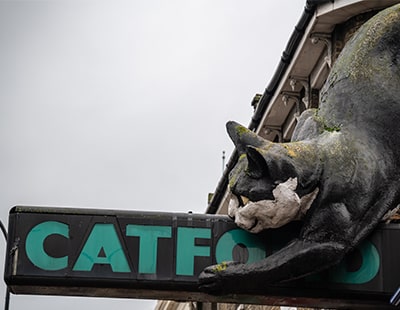
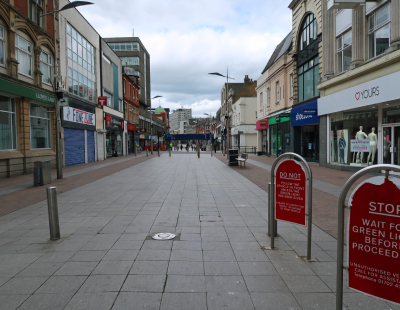
.jpg)
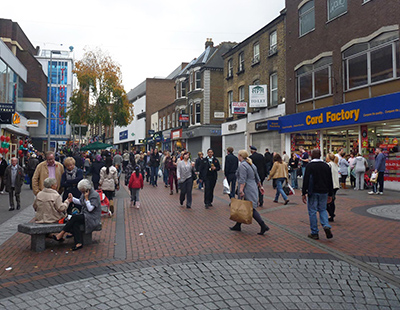


.png)









Join the conversation
Be the first to comment (please use the comment box below)
Please login to comment